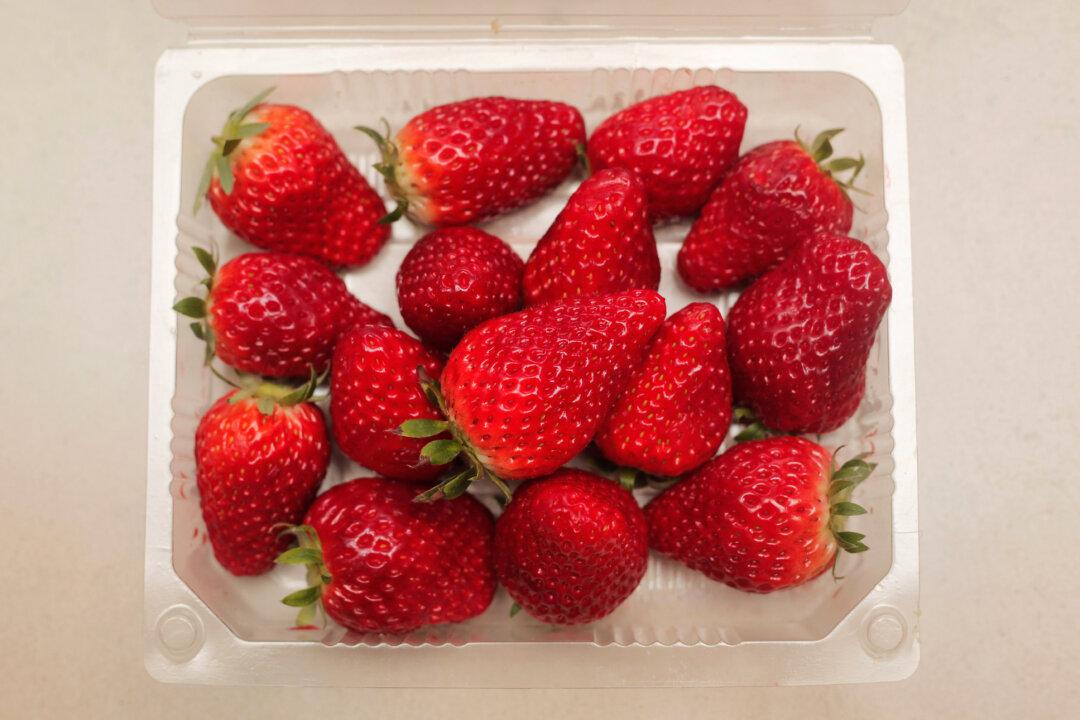There’s definitely pesticide residue on strawberries sold in China, but whether it’s hazardous to health or not is debatable, according to reports in China state-run media. Regardless, wary Chinese citizens, fearful of yet another food scandal, have steered clear of the fruit, which caused a collapse in the strawberry market.
In a six-minute report aired at the end of April, state broadcaster China Central Television (CCTV) revealed that traces of toxic pesticides—chlorothalonil and acetochlor—were found in strawberries purchased from eight locations in Beijing, covering supermarkets, wholesalers, and roadside vans.

A screen grab from a CCTV investigative report on pesticide laced strawberries in Beijing on April 26, 2015. Screen shot via cntv.cn




